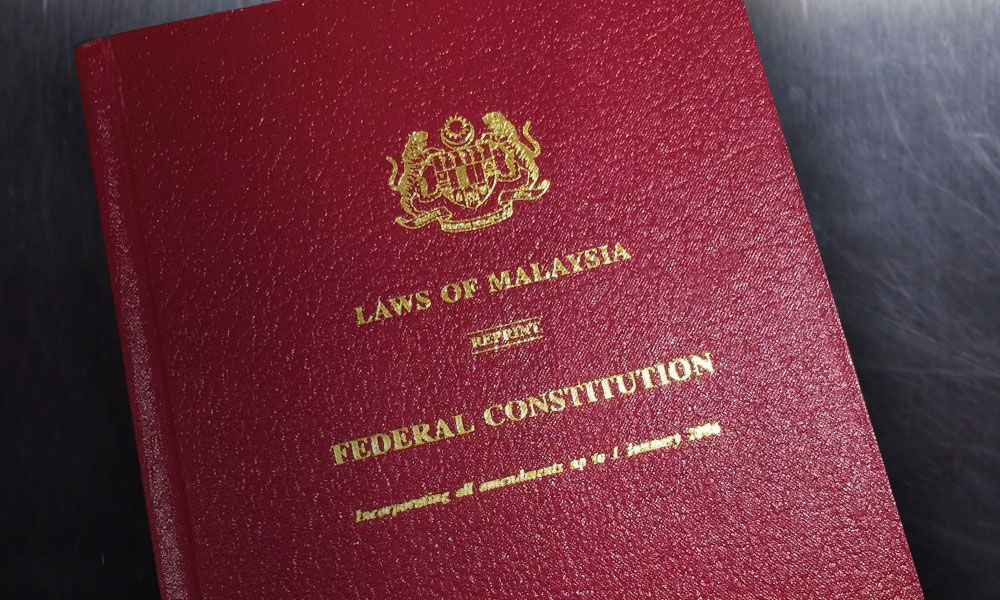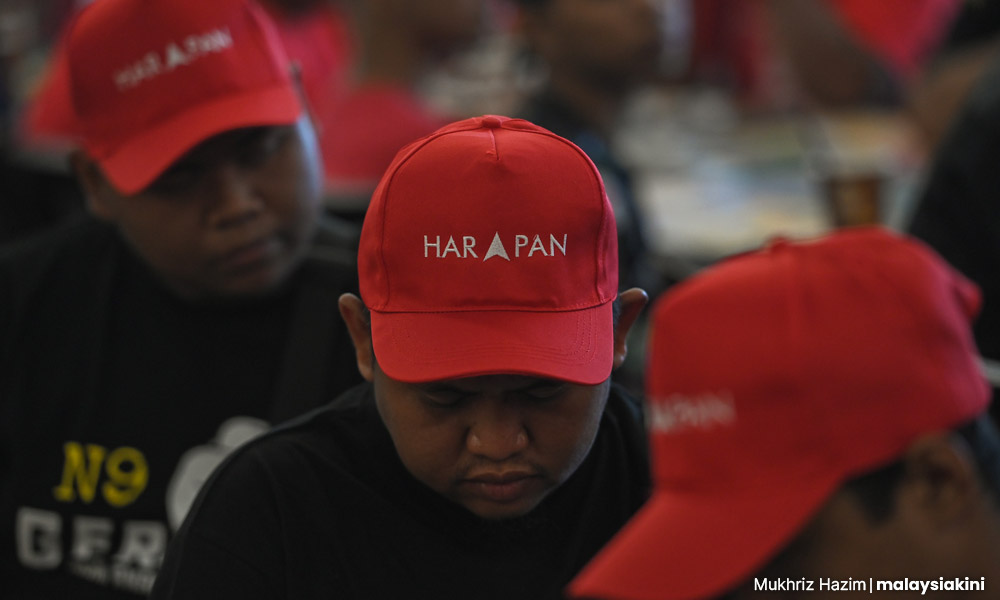The Sabah Law Society (SLS) will be able to proceed with a full court hearing of its challenge regarding the state’s 40 percent grant revenue.
A three-person Court of Appeal bench - chaired by Ravinthran N Paramaguru and comprising member judges Mohd Nazlan Mohd Ghazali and Choo Kah Sing - today unanimously dismissed the federal government’s appeal to quash the judicial review leave granted by a lower court to SLS.
The Sabah government - an intervener during this morning’s online appellate proceedings - indicated through its state attorney-general Nor Asiah Mohd Yusof that it is not appealing against the leave granted to SLS to proceed with the legal challenge.
On Nov 11, 2022, the Kota Kinabalu High Court granted leave to SLS to commence the judicial review over the federal government’s alleged failure to return 40 percent of annual revenue derived from Sabah to the state government, for the “lost years” between 1974 and 2022.
In 2022, SLS filed the judicial review leave application to nullify the federal government’s gazette of an RM125.6 million annual grant for Sabah, claiming it violated the state’s revenue rights under the Malaysia Agreement 1963.
With today’s apex court decision, the High Court is set to hear the merits of SLS’ judicial review (under the law, leave is needed before a judicial review's merits are heard in order to filter out frivolous or wholly unmeritorious actions).
Ravinthran ruled that the state entitlement revenue issue needs to be ventilated in a full court hearing as it is a matter of public interest.
The appeal judge disagreed with arguments put forward by the federal government’s representatives from the Attorney-General’s Chambers that SLS is a busybody without legal standing to file the judicial review.
“SLS is a body set up for advocates and solicitors of Sabah, and Section 13A of the Advocates Ordinance enjoins it to uphold the cause of justice without regard to its own interests, hence it is not a busybody and has a genuine interest in the judicial review.
"The instant judicial review application is clearly a public interest litigation taken for the benefit of a section of the public. It is not taken to seek redress for a personal wrong or grievance of SLS.
“The issue sought to be addressed is of constitutional importance no less, it is taken to purportedly vindicate over the constitutional rights accorded to the state of Sabah and therefore, by extension, to the benefit of the people of Sabah.
“Whether (the judicial review) has merit is to be addressed at a full hearing (before the High Court),” the appeal judge said.
Ravinthran added that the appellate bench is of the view that the judicial review is a matter that the court has jurisdiction to preside over because SLS is not challenging the lawfulness of the special grant by the federal government to the Sabah administration.
He noted that SLS is instead seeking to challenge the alleged omission by the federal government in 2022 to account for the “lost years” that allegedly deprived the state government of the annual 40 percent grant.
Ravinthran also made no order as to costs due to the matter being of public importance.
Breach of constitutional duty
Through the legal action, SLS claimed the federal government’s failure to review the payments in 1974 amounts to a breach of its duty under Article 112D of the Federal Constitution.
Article 112D states that the federal government’s annual grant to Sabah is subject to a periodic review.

The provision for the grant is laid out under Article 112C(1)(a), read together with Part IV of the Tenth Schedule of the Constitution.
Among other things, it states the federal government shall provide Sabah with an annual grant equivalent to “two-fifths of the amount by which the net revenue derived by the federation from Sabah exceeds the net revenue which would have been so derived in the year”.
However, per Article 112D, in the event that the federal and state governments agree, they can alter or abolish these grants, or make a new one as a substitute for the grant stated in the Constitution.
Article 112D also lays out various factors that should be considered in the review, namely the federal government’s financial position, the needs of the state government, and ensuring that the latter has enough revenue to meet the cost of its services.
The grant is part of the concessions given to Sabah for joining Malaya and Sarawak to form the Federation of Malaysia in 1963.
According to news reports, following the first review under Article 112D in 1969, the two governments agreed on the following amounts in lieu of the grants for Sabah under Article 112C(1)(a): RM20 million in 1969, RM21.5 million in 1970, RM23.1 million in 1971, RM24.8 million in 1972, and RM26.7 million in 1973.
A second review is supposed to have taken place in 1974 but purportedly did not materialise.
Instead, according to a parliamentary reply on March 6 last year, Sabah has been paid RM26.7 million for each subsequent year until a review took place in 2022.
New arrangements
The new arrangement after the 2022 review is as follows, according to the Federal Gazette in April 2022: RM125.6 million in 2022, RM129.7 million in 2023, RM133.8 million in 2024, RM138.1 million in 2025, and RM142.6 million in 2026.
The total comes to RM669.8 million over five years.
Prime Minister and Finance Minister Anwar Ibrahim told Parliament in his written reply to Keningau MP Jeffrey Kitingan that this is pending negotiations for a new formula.
Once an agreement is reached, it will be in force from 2022.
Subsequently, after a review in June last year, the 2022 arrangement was scrapped in favour of a new deal gazetted on Nov 22, 2023.
The federal government would pay Sabah RM125.6 million in 2022, RM300 million in 2023, RM306 million in 2024, RM312 million in 2025, RM318 million in 2026, and RM325 million in 2027.
That is RM1.687 billion over six years.
These payments are being made as substitutes to grants stipulated under Article 112C(1)(a), but Pakatan Harapan had promised in its 2022 election manifesto to restore it to its “original formula”.

The current Sabah administration under Gabungan Rakyat Sabah’s Hajiji Noor also indicated that the state would insist on its entitlement to 40 percent of federal revenue derived from the state.
Senior federal counsel Shamsul Bolhassan, Ahmad Hanir Hambaly @ Arwi and V Krishna Priya represented the attorney-general.
Lawyers Jeyan Marimuthu Dr David Fung appeared for SLS.
Former SLS president Brenndon Keith Soh also acted for the Sabah government. - Mkini



No comments:
Post a Comment
Note: Only a member of this blog may post a comment.